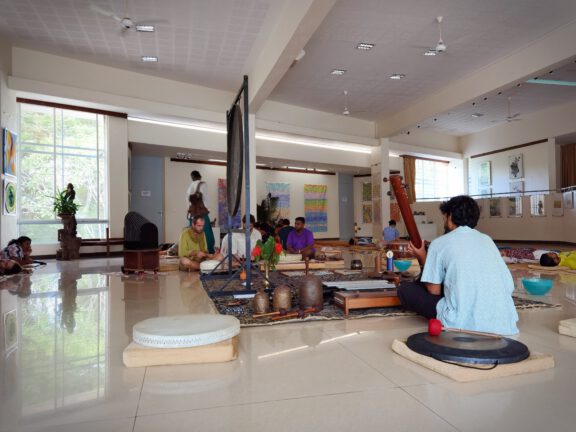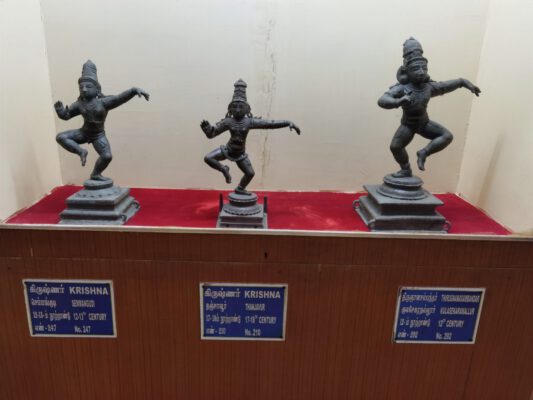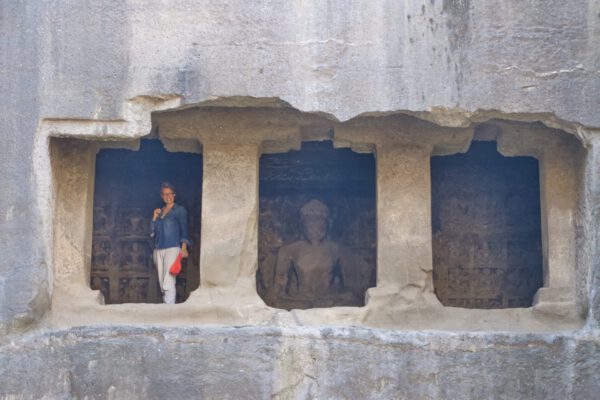II didn't take much with me to India, a backpack full of clothes, books and technology. But I packed a good pair of headphones and have now bought an external cell phone hi-fi sound card from Tempotec for the USB-C output, it wasn't cheap, but it's excellent. I was delighted when it arrived today and of course I tried it out straight away. What a mixed experience.
The music immediately evoked memories, I revelled in the music. I thought of Husserl, who describes very nicely how present consciousness always consists of memory (retention) and expectation (protention). This also makes a lot of sense for music, it is important to remember what has happened in the last few seconds or minutes and it is important to anticipate that it will continue, even if perhaps in a completely different way. Otherwise you simply can't listen to music. But this seems to be the exact opposite of what meditation is all about.
Listen
In order for me to shed my little self, I have to realize that the self does not actually exist, that its senses do not belong to it, that in seeing there is only seeing itself, in hearing only hearing itself. The mind has thoughts, but they themselves are only thoughts. The now-consciousness, as Husserl describes it, cannot belong to any ego. So who is listening? The small self that takes itself far too seriously?
Consciousness can only be true in its surrender to the Self - Brahman. In the old and new scriptures this is called bliss. Listening to music in a state of meditation, what can that be? The recognition of structures, composition, expectations and memories, all these are the very elements of consciousness that need to be stripped away. So is listening to music a path that leads away from cognition?
Or is there a higher function in listening to music? Is being immersed in music, the state in which we are completely music, gliding through time with it without thinking, but still completely and utterly in music, a state similar to meditation? Is this fulfilled listening to music bliss? Of course, it is only rarely possible to immerse oneself in music in this way. Sometimes it can take on a trance-like state, sometimes a highly concentrated awareness of a world context. It is created by the interplay of a composer's composition or a tradition, the performers and the listeners. In the technical recording, the relationship is distorted, but still exists in principle. From a semiotic point of view, music is always an abstract reference to the world and at the same time the most direct of all communication - birdsong.
Shafts
On another level, we are dealing with sound waves in music (light waves in visual art). We ourselves are probably made of an atomic lattice that consists of 99 % of nothing. There is no ego that perceives something else. There is only the level of immanence, pure existence in which these forces interact. It's nice that this creates the illusion of an ego. I like that, but it is a fallacy, or at least a truncated view. This ego that shines forth in these force fields is an ego that transcends immanence, it can establish connections with distant things, across space and time. This is perhaps what Deleuze calls deterritorialization and the flight of the line. So I listen in this network. Perhaps to listen to music is to become aware of oneself as selfless.
Atman
But is it possible to reach the level of Brahman consciousness with music? Is the round dance of the gods, are the heavenly sounds, the requiem and oratorio witness to a divine consciousness? In Christian church music, it is probably only ever a sound space of the afterlife, a space that can only be reached after death and of which the music provides a foretaste. That is a little sad. I have an image of harp-playing angels sitting on clouds.
The task of Atman in Brahman, the realization that everything is only one, is quite another. India is loud, the fanfares in the temples screaming, the Ragas on the other hand, contemplative and meditative. I always have the feeling that it's not about an artist, but that something is being manifested here. A bit like the OM choir. It's the opposite direction. It is not the human being who creates a baroque space in which the divine is sung, but the divine consciousness descends through the performance. Or to put it another way, immanence flows through, flows through itself.
P.s.: I am writing this while listening to Schubert's String Quintet in the recording with the Quartetto di Cremona hear.






